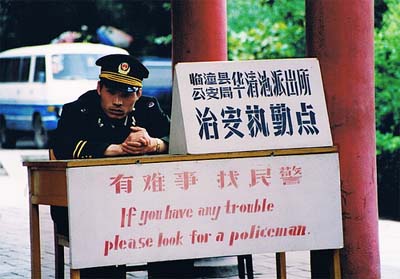From 1949 to 1965, law was simply an instrument of policy; during the Cultural Revolution (1966-1976) courts were brushed aside, law schools closed, and adherence to law denounced as a bourgeois enemy of revolution. The economic reform that began in 1979 became an engine for legal reform. A fundamental new orientation toward governing China emerged, in which formal legislation has become the major framework for the organization and operation of the Chinese government. Illustratively, legislation has been used to frame commercial activity; to express policies of state macroeconomic control and their implementation; to give legal recognition to new rights and interests; and to create a framework for direct foreign investment. Constitutional amendments in recent years have at least formally expanded the rights of the Chinese people.
The courts and the bar have been reconstructed. Formerly scorned as ‘rightist’ institutions at the end of the 1950s and as ‘bourgeois’ during the Cultural Revolution, the courts have been rebuilt in a four-level hierarchy. They are increasingly being used as the forums in which rights created by legislation are asserted by citizens against each other and, to some extent, against state agencies. The courts, however, are not independent and are run like any other government hierarchy. Also, some cases are deemed politically sensitive and decided by Party organs, in some criminal cases defendants have been unlawfully tortured, and cases in which outcomes are influenced by local business or government interests continue to abound. Corruption, too, remains a serious problem.
The quality of judges has been increasing, especially in the higher courts and in coastal cities, although professionalization of the judiciary has been slow and uneven. Reforms in civil procedure are being addressed , albeit slowly. At the same time, popular dissatisfaction with the courts is reflected in increasing complaints to Letters and Visits Bureaus and petitions to local and national legislative bodies and local governments—which are often repressed. Enforcement of judgments is a frequent problem.
In some areas, the authoritarianism of the Party-state continues. Chinese criminal law and criminal procedure remain heavily dominated by the police and by Party influence over individual cases; recurrent ‘campaigns’ to punish crime distort the operation of the criminal process. Police still have the power to send alleged offenders against certain laws to ‘labor reeducation’ camps for as long as three years. Both within and outside the criminal area, much legislation has only been hesitantly and incompletely implemented. Activist lawyers often encounter strong governmental resistance to lawsuits they attempt to file.
The construction and strengthening of legal institutions is hampered by extensive administrative decentralization in practice that marks Chinese governance. Even more basically, it is difficult to build a legal system amidst the flux in values brought about by growing socio-economic inequality and rural-urban and coastal-inland disparities in economic growth. Growing public resentment, paired with the steady demise of the party’s ideological appeal amid market reforms, has forced the CPC leadership to grapple with threats to social stability and a genuine crisis of legitimacy.
The Hu Jintao leadership’s current policy emphasizes the building of a ‘socialist harmonious society’ as a response to growing disaffection among Chinese people increasingly frustrated by the inequities that have arisen with rapid GDP growth, the lack of a social safety net and, now, dislocations caused by the current worldwide economic crisis. The leadership has deep concern about the growth of civil society and social protest, and sees legal culture changing among a populace that is increasingly asserting rights and expressing dissatisfaction with the lack of remedies for violation of their rights.
Looking ahead, on the one hand China formally deepened its commitment to maintain the ‘uniform, impartial and reasonable’ administration of law when it acceded to the WTO, and has been taking steps to increase governmental transparency and strengthen administrative law. On the other hand, to implement the ‘harmonious society’ policy, the courts have been told that rather than adjudicating cases, they should mediate and accomplish settlement of disputes, especially if they inspired public protests or riots. The current Party line asserts Party control and an increase in the flexibility with which courts decide cases, emphasizing ‘the feelings of the masses’ and social conditions as well as the Constitution and laws.
The ambiguity in Party policy toward law is reflected in the fact that judicial independence has never been accepted as an official goal. Its priorities are economic development, seeking solutions to social problems while retaining public confidence in the Party-state, solving political problems step by step, and guarding against major political events that might affect economic development.
The foregoing summary suggests that Western observers should adopt an attitude of cautious pessimism. Although political reform is needed to accelerate legal reform that would make government and the Party truly accountable, the Chinese leadership lacks the political will to press for energetic legal reform; in the meantime, too, Chinese legal culture can change only slowly. It is wise to remember, too, how many centuries it took for the rule of law to be established in the West—and that China has had only thirty years so far.
Stanley Lubman, a long-time specialist on Chinese law, is Resident Lecturer at the University of California, Berkeley, School of Law and the author of ‘Bird in a Cage: Legal Reform in China After Mao,’ (Stanford University Press, 1999).

